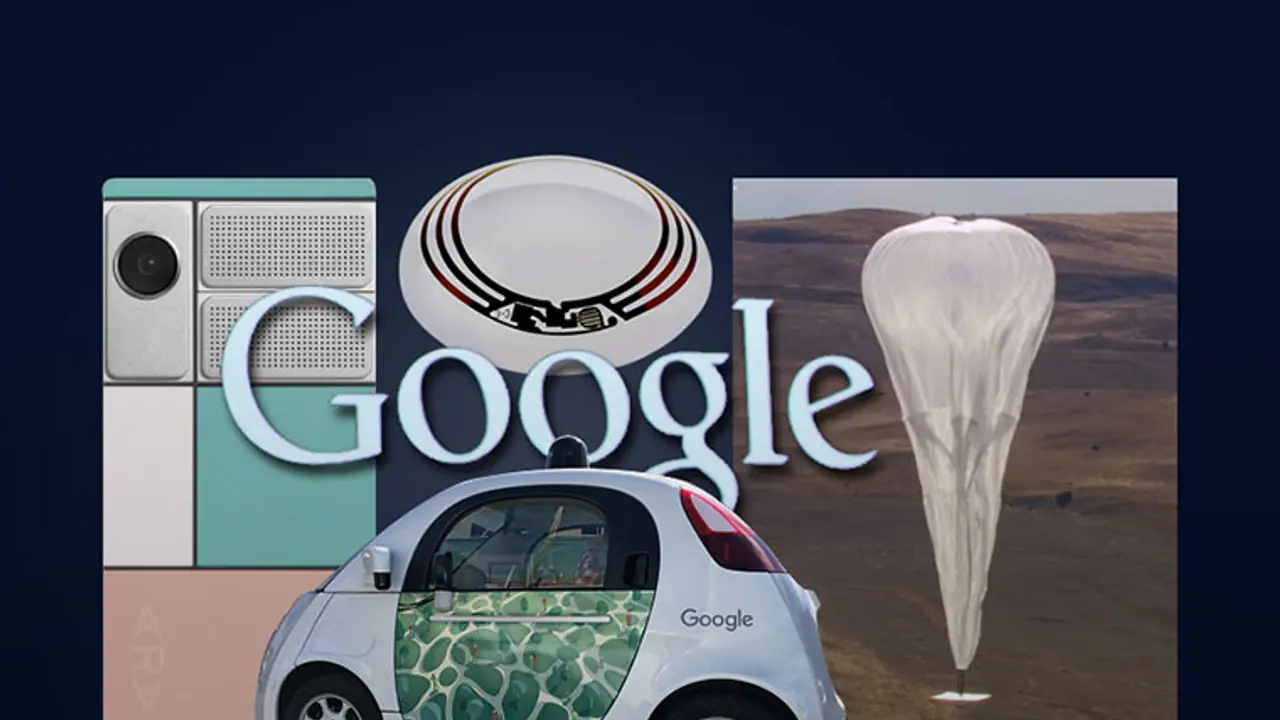Smart lenses that can detect glucose levels in diabetics by analysing tears may not turn into a reality anytime soon. The Internet beaming drone may not hover over a remote village. A wristband that detects cancer is nowhere close to reality. Google X projects or moonshots seem to have backfired.
The coolest research at Google, known as Google X or moonshots, seems to have misfired. In the past one year, we've seen these projects that looked like a leaf from the sci-fi fantasy world fall flat one after the other. The latest being shutter pulled down on the Internet beaming drone.

Project Titan is dead! Project Ara is dead! Smart Glass is dead! Project Verily is dead (we think)! We haven't heard about the new eye-wear project dubbed Aura for a long time. Nest is embroiled in an internal battle with its inability to produce a new product, public mud-slinging and finally the chief stepping down.
 All in all, things aren't going great at the fun side of Google. Or, the company has finally woken up from the Star Trek world into reality. Autonomous cars are still up and running and that makes absolute sense.
All in all, things aren't going great at the fun side of Google. Or, the company has finally woken up from the Star Trek world into reality. Autonomous cars are still up and running and that makes absolute sense.
Google’s plan to pull the plug on beaming Internet from the sky to bring people from remote areas online has 'economic and technical challenges' to be blamed. This means the efforts could be shifted toward- Internet-emitting balloon Project Loon and drone delivery Project Wing. But, the last we heard was Project Wing had frozen hiring.
Another exciting project that has been slipping down the slippery slope is verily or the ambitious magical healthcare that is likely to miss the target of 2019, or rather may not see the light at all. These included Google's Smart Lenses that can glucose levels in diabetes by analysing tears and a wristband that can detect cancer.
However, it was mocked by Stat, a Health and medicine publication calling it Google's attempt at making Star Trek fiction into reality. The report ripped apart the project saying former employees aren't sure if the project will ever go live and even called it 'working on unimaginable things' and 'faith-based science'. The current status of this project – we don’t know.
Google smartly pulled the shutter on $1,500 Glass, and rather settled for a Cardboard. Then a modular phone was believed to bring the shift in pattern in the way we use smartphones. Imagine, a phone that will you replace a component, just like your PC, instead of buying a new one.
 Google may have realised that it's a bad proposition for the future of phone market. But, above all, modular concept wasn't really doable in a seamless, cost-effective manner. We've seen LG and Motorola try their hands at modular phones last year and reportedly they've changed their mind too. Finally, a Reuters report said that Google plans to suspend Ara.
Google may have realised that it's a bad proposition for the future of phone market. But, above all, modular concept wasn't really doable in a seamless, cost-effective manner. We've seen LG and Motorola try their hands at modular phones last year and reportedly they've changed their mind too. Finally, a Reuters report said that Google plans to suspend Ara.
Just like Google, several others have begun testing autonomous car technology. Players like Uber plan to implement it too. But, if reports are to be believed then autonomous cars may not be ready to hit roads until 2025.
There's Google’s Project Jacquard that has been pinning its hope on Levi’s Commuter Trucker Jacket and Owlet Smart sock, among others. Yes, it is the smart clothing project. Probably, a wearable that Google expects to become a huge success, but only time will tell is 2017 will be about smart clothing.
Segregating these projects as subsidiaries of Alphabet has probably made the company realise that it’s time to focus back on the cash cows such as search, mobile and other web tools. While we loved the fun side of Google and the sci-fi world that Google wanted to build, as Google has grown up and so should we. Google is a powerful online company, but we've seen tables turn, and there is no denying that it is facing reasonable competition from Facebook in terms of mobile advertisements.
With mobile being the future and Google's history of failed attempts at building a social media site (Buzz, Orkut and Google+ fizzled out) means the company has some, if not a lot, to fear. Google is always known to have taken risk, and some have paid back beautifully. But, after years of investment and dabbling with newer technologies, the company’s (reported) decision to shutter down some of these overtly extraordinary yet unpredictable projects make sense.
